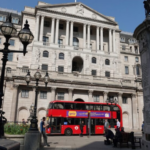Taxpayers could save both money and headaches in 2025 by committing to better tax practices, according to leading audit and tax advisory firm Blick Rothenberg. As the deadline for the 2023/24 tax return looms on 31 January 2025, experts are urging individuals to plan ahead and take proactive steps to minimize their tax burdens.
Robert Salter, a Director at Blick Rothenberg, points out that while many people set personal resolutions for health and lifestyle, managing financial health should be equally prioritized. “Being on top of your taxes plays a significant part,” Salter said. He emphasizes that taxpayers who complete their tax submissions early can avoid the stress of last-minute filing and reduce the risk of penalties from HM Revenue and Customs (HMRC).
For those who have not yet filed their tax return, Salter recommends resolving to submit it earlier this year. By doing so, individuals can ensure they have ample time to address any issues and avoid penalties. “It’s always best to tackle taxes early,” he advises.
In addition to timely submission, Salter highlights the importance of taking full advantage of available reliefs. Taxpayers in higher income brackets, such as those paying tax at 40 or 45 percent, may be overlooking valuable opportunities. For example, gift aid contributions made during the 2024/25 tax year can be claimed through a self-assessment tax return, potentially delivering immediate savings. Furthermore, these contributions can be brought forward for relief in the previous tax year if submitted before the filing deadline.
Pension planning also presents an opportunity to reduce tax liabilities. Salter suggests that employees receiving bonuses in February or March consider directing them into a pension scheme through an employer contribution. This strategy may help lower the overall tax bill, as pension contributions are typically tax-deductible.
Salter also highlights a National Insurance Contributions (NICs) easement available until 5 April 2025, which allows individuals to fill in any gaps dating back to 2006/07. By taking advantage of this easement, taxpayers can boost their future state pension payments.
For couples, particularly where one spouse is a non-taxpayer or lower-rate taxpayer, reviewing how investments are held can be beneficial. Transferring assets to the lower-rate taxpayer can make the most of personal allowances and potentially reduce the overall tax burden.
Finally, Salter advises individuals to review their PAYE tax code for the 2025/26 tax year to ensure that any pension contributions, professional subscriptions, or benefits-in-kind are accurately reflected. This will help ensure the correct tax relief is applied, avoiding any surprises when the return is filed.
By adopting these simple tax resolutions, taxpayers can save money and reduce stress throughout 2025.









